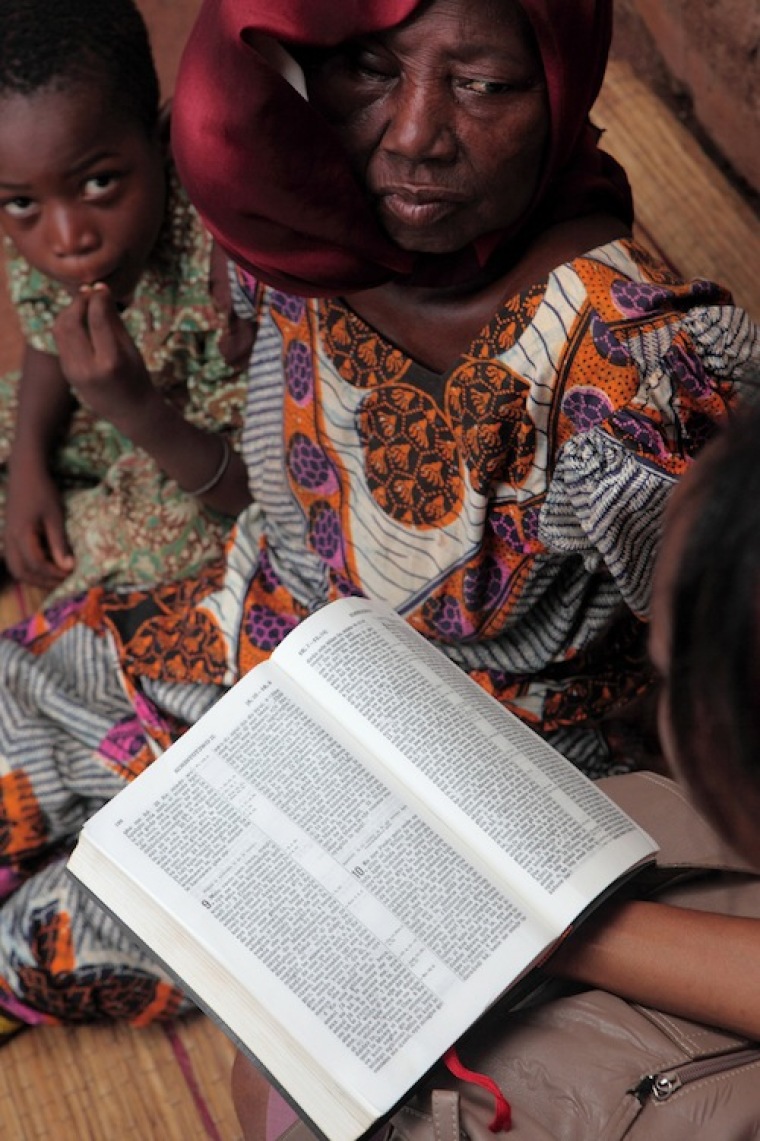
But the desperate need for such care in West Africa sometimes creates medical conditions that cannot be remedied.
On screening days many patients wait in line for hours to eventually be told that there is nothing that can be done to save them. It is devastating news to someone whose last hope was the free medical care provided by Mercy Ships.
Ayabavi was one such person who received that devastating news during this year's assignment to Togo by Mercy Ships volunteers. For 18 years she watched a tumor grow on the side of her face. She built up the courage to come out of hiding to attend the screening. Doctors performed a biopsy and gave her a CT scan. Unfortunately, the tests determined that she had a very advanced malignant tumor that was inoperable.
With her world shattered, Ayabavi had nowhere to turn. Due to the cultural view of tumors as a sign of a curse, several of Ayabavi's children had not even spoken to her in years. She was literally alone and empty of hope.
Cases like this are the reason why Mercy Ships has developed a Palliative Care Program. It is a service to help people with a terminal illness. Harriet Molyneux, a Palliative Care Nurse on the Africa Mercy, says "Our goal with this program is to meet weekly with the patients and be a bright spot in their week. We pray with them, talk to them, and help ease their pain by giving them medication and dietary advice.'
Harriet has been visiting Ayabavi every week for three months at her daughter's food store in a village, an hour's drive from Lomé. "We've been talking through Bible verses and praying with her. She seems to be a lot more peaceful now . We also give her pain relief and talk through any issues she might be having."
Harriet also takes advantage of as many local resources as she can because, at the end of the Togo Field Service, Ayabavi will be on her own without a source for pain medication. One example of a local resource is the Morenga tree, used as a natural dietary supplement that is packed with vitamins, protein and carbohydrates. Ayabavi crushes the leaves and drinks the liquid to provide essential nutrients which are lacking in her diet.
Ayabavi's life has definitely changed since Harriet began visiting. "Without this program," she says, "I would already be dead. I get excited every Wednesday knowing that Mercy Ships is coming. It helps make my life better. Before they started coming, I was ashamed, and those around me would hold their nose because I smelled bad. Now, their treatment has helped make the smell go away."
Ayabavi's daughter, Tante, has seen a visible change in her mother since Palliative Care started coming to see her. Tante says, "I can tell that she feels more comfortable being around others. Before, she never had the confidence to sit among a group of people. Look at her now, sitting with a group of 10 people talking freely. They have truly transformed my mother's life."
Confidence is not the only thing that Ayabavi has gained. She has also started studying the Bible. A friend at her church reads passages to her every week. It is clear that one verse has become very special to Ayabavi.
"Read Phillipians 4:6," Ayabavi says to the translator Silvie, "This is the one I think about during the day when I get sad or feel down." And Silvie reads to her - "Do not be anxious about anything, but in everything, by prayer and petition, with thanksgiving, present your requests to God." Ayabavi smiles a deep, contented smile for the first time since Harriet and her team arrived.
On the web: www.mercyships.org.au
